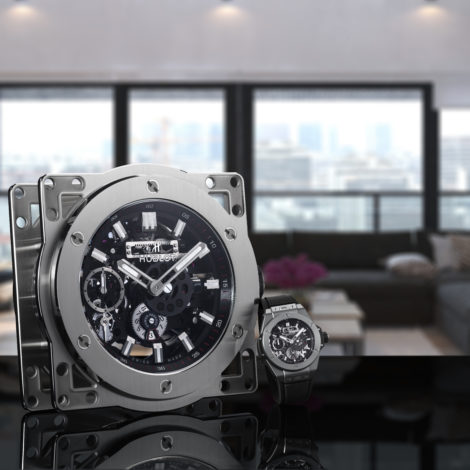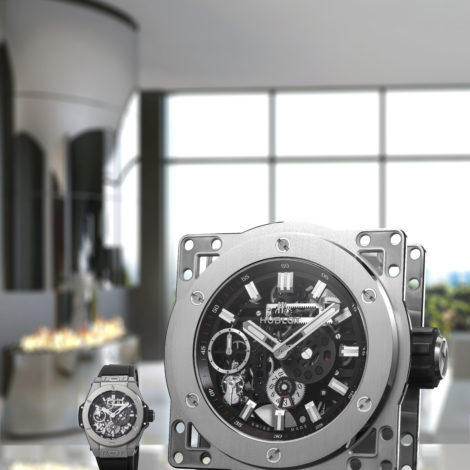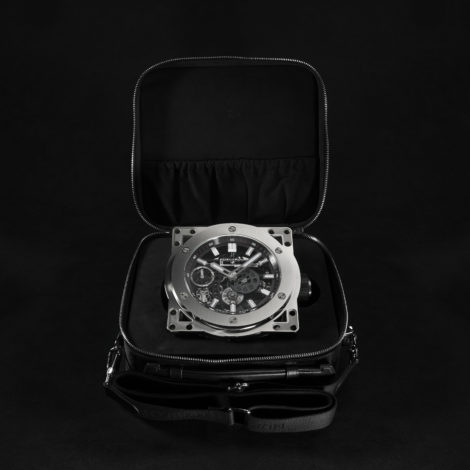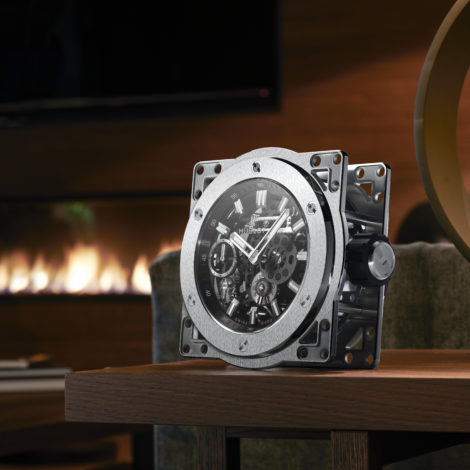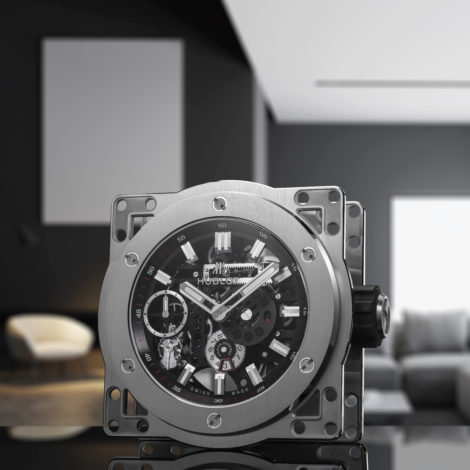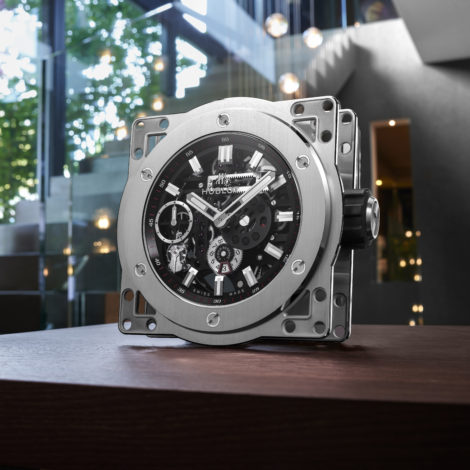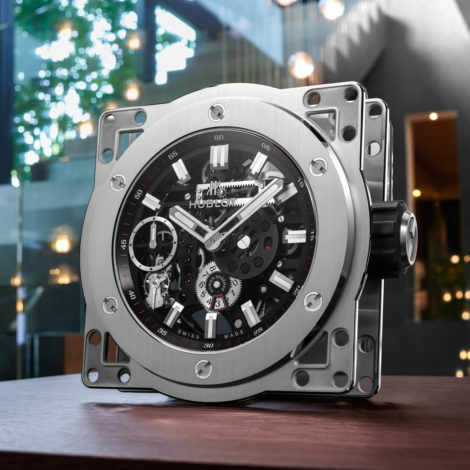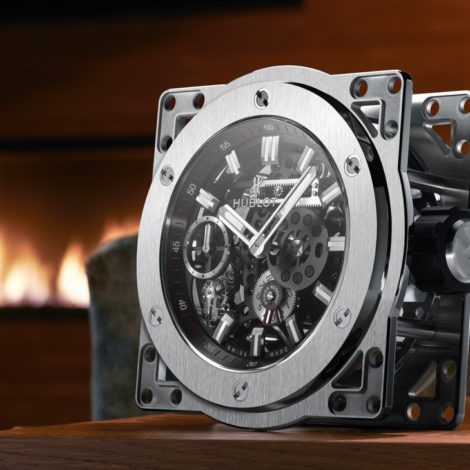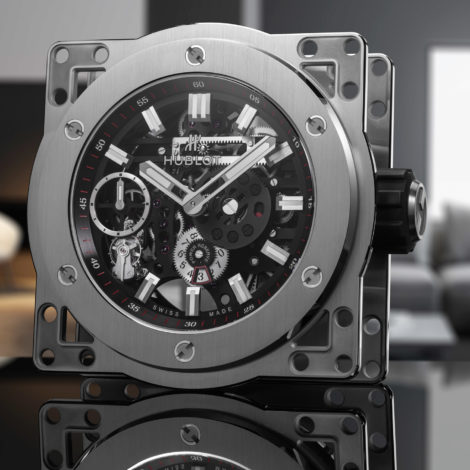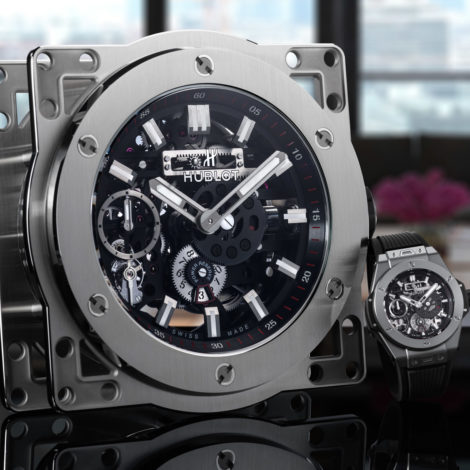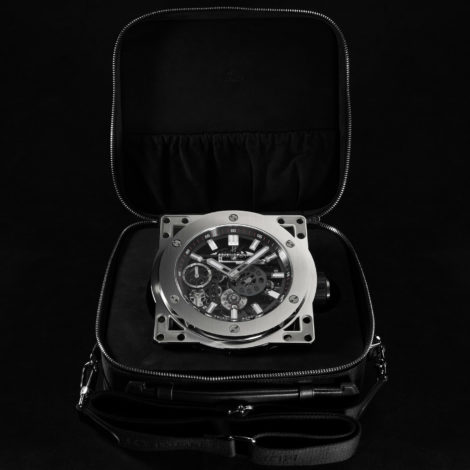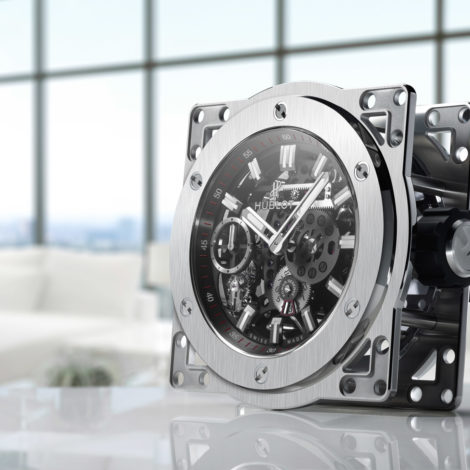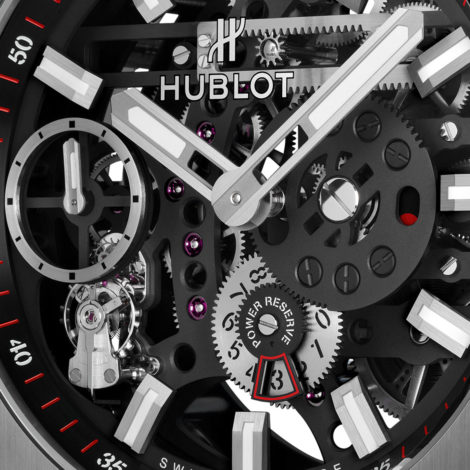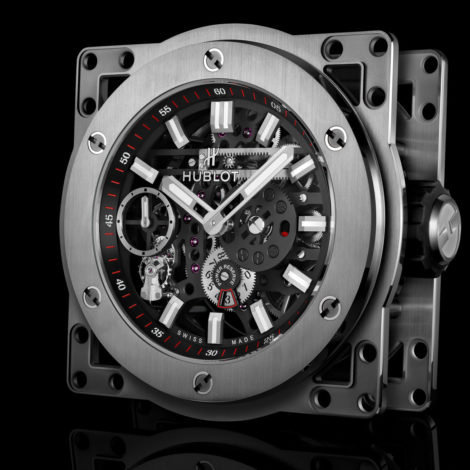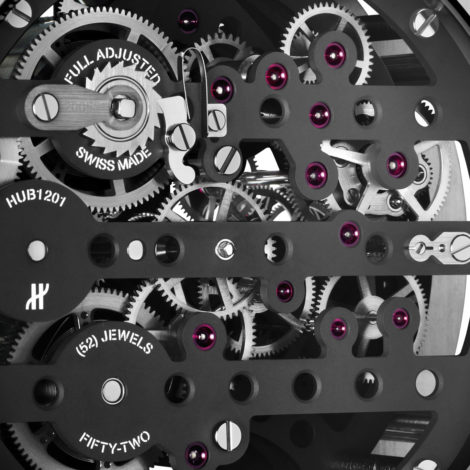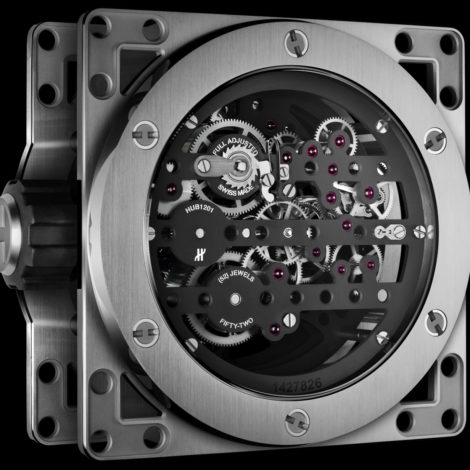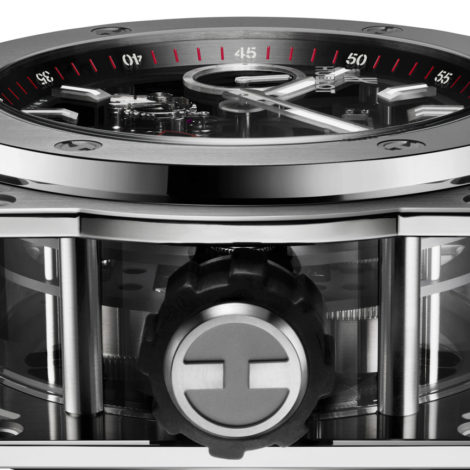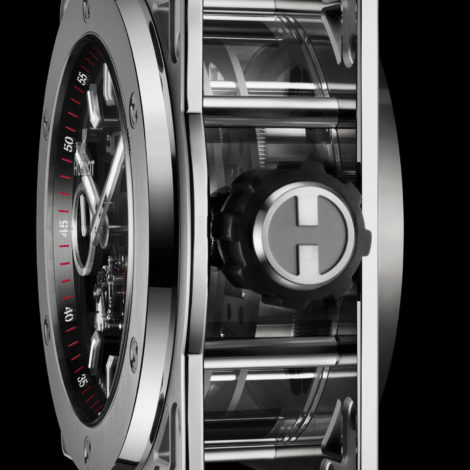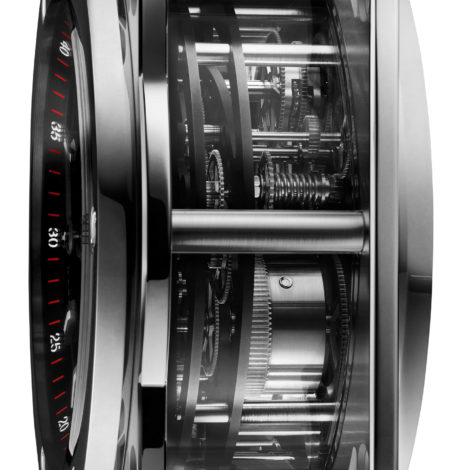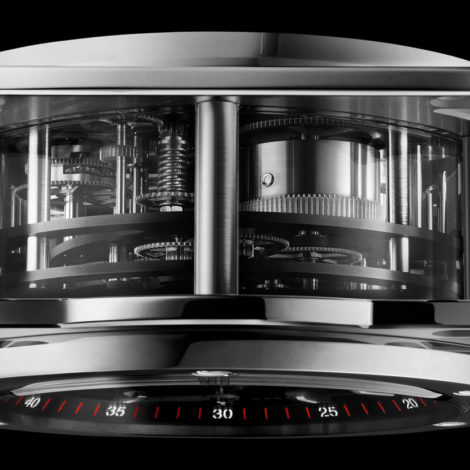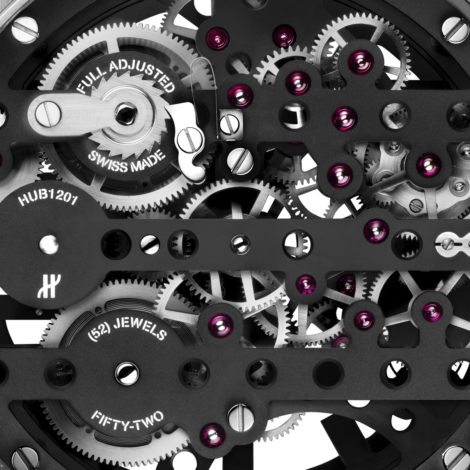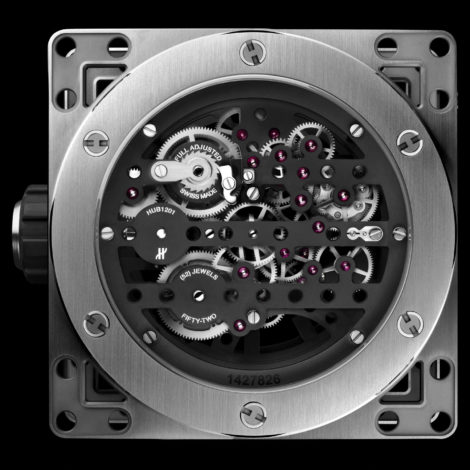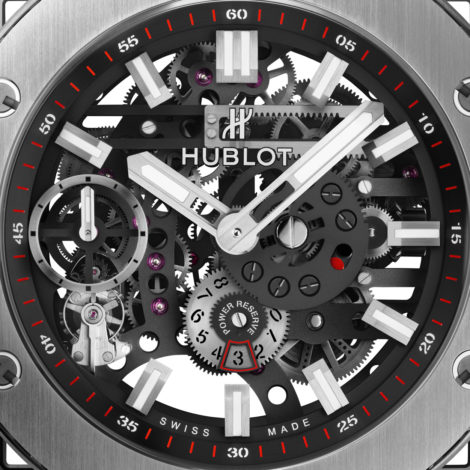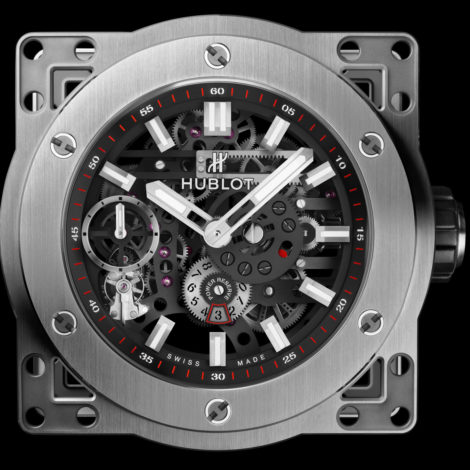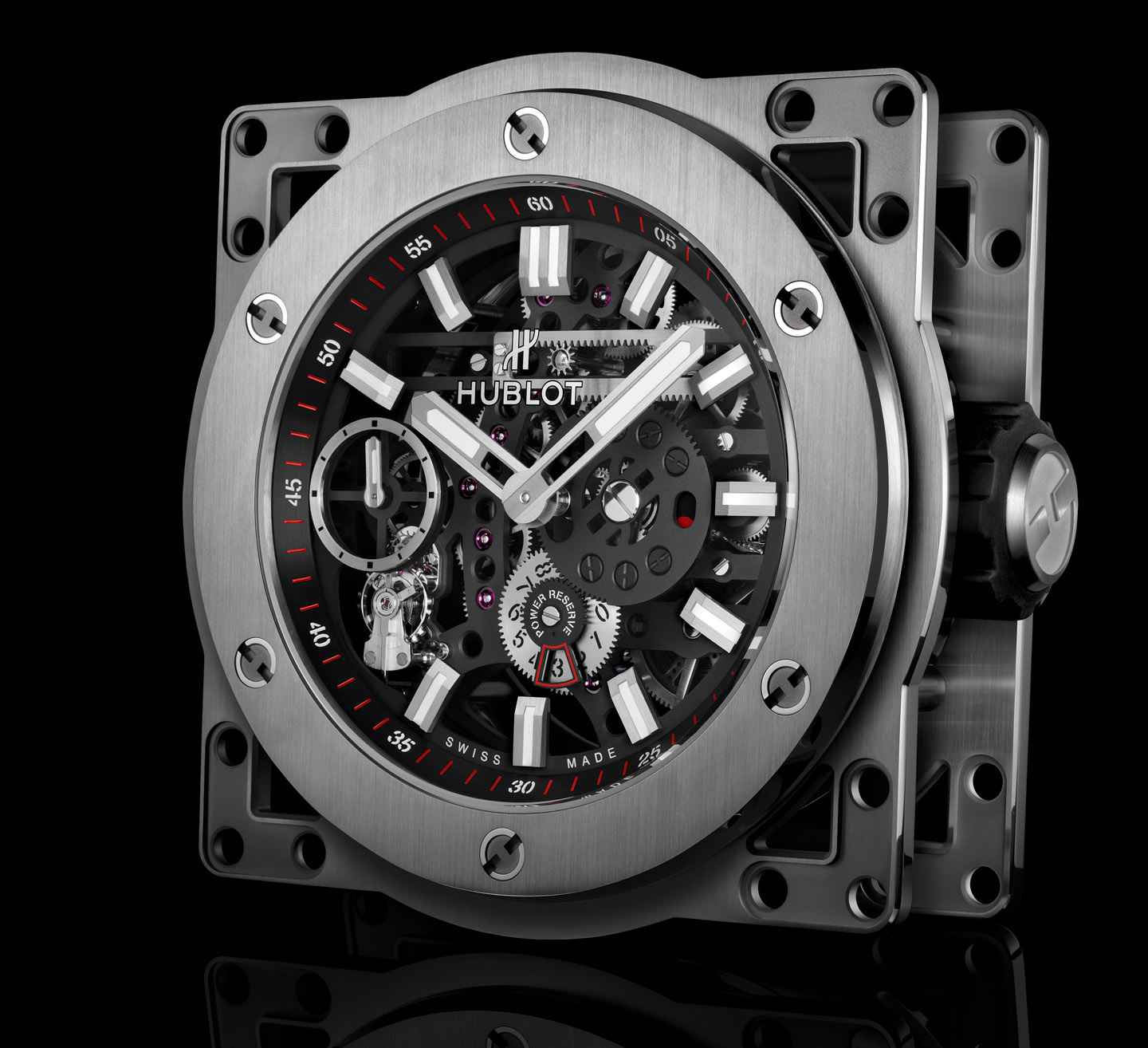
Most of the time in the watch industry, big (no pun intended), news takes the form of something previously large being engineered to be smaller. Nearly every piece of watchmaking technology in a wristwatch began life in larger form— sometimes from an entirely different industry. Rarely is there a press release in which the announcement is, “We made something bigger!” With 2020 nearly under our belts, I don’t think we should any longer expect history to dictate our future. Swiss Hublot delights the imagination with a clock version of its Meca-10 wristwatch. The company contracted with also Switzerland-based L’Epee (the company that makes all those neat MB&F clocks) to recreate the MECA-10 movement in a larger form. The result is the Hublot MECA-10 Clock for this exercise in high-end maxiature.
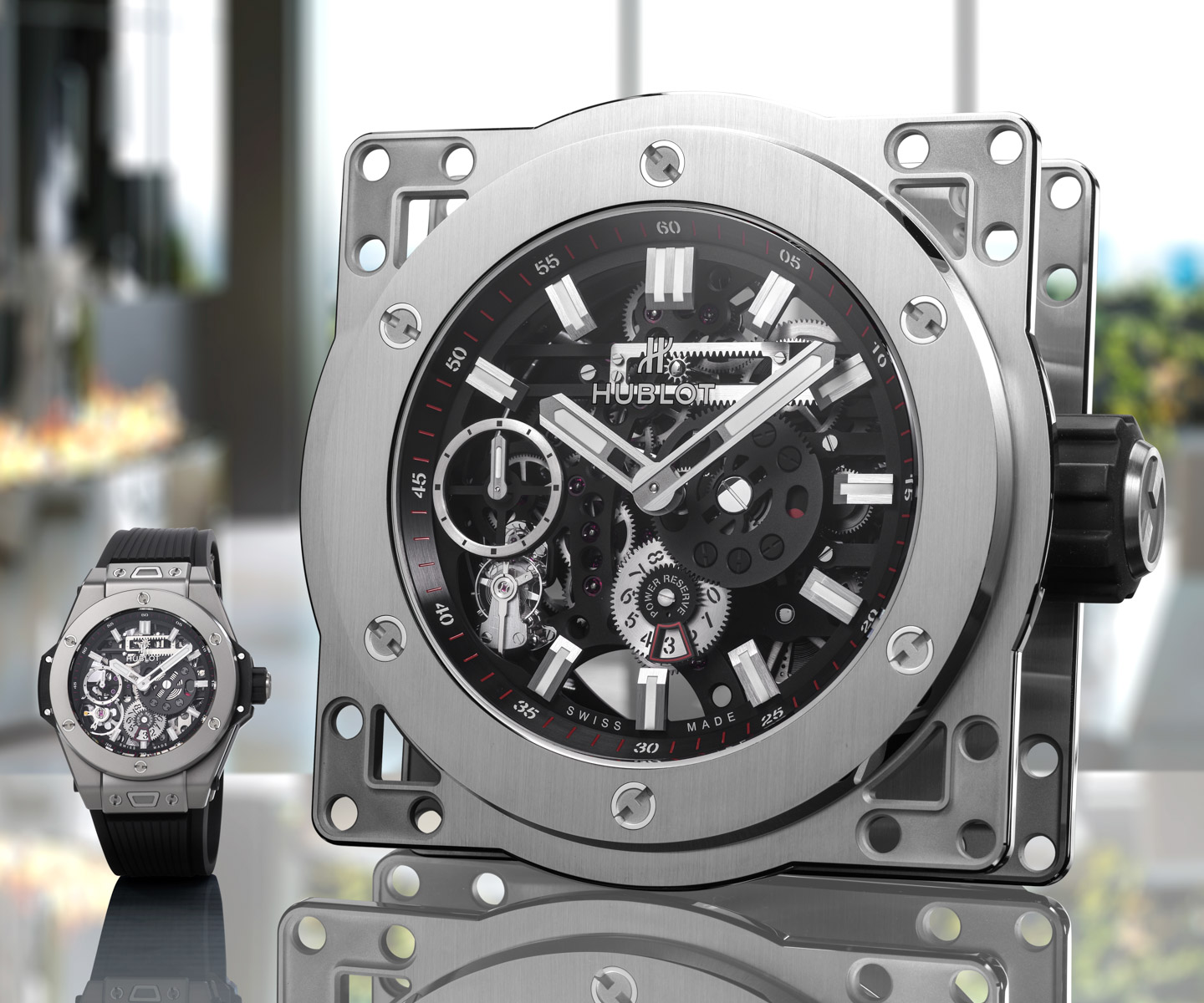
Before I discuss the dimensions of the two initial versions of the MECA-10 Clock, let’s discuss the Big Bang MECA-10 watch briefly. I first debuted the Hublot Big Bang MECA-10 watch here. It was a sleeper hit that Hublot barely pushed when it was first released but has been noticed by enough watch collectors that aBlogtoWatch has written about versions of the MECA-10 watch at least half a dozen times over the last few years. My favorite memory of the MECA-10 watch is a random moment I had at the Hublot manufacture, where I was seated next to one of its movement designers, who proceeded to walk me through the CAD files of the movement. If anything, it was the ultimate validation that the MECA-1o is a truly home-grown Hublot product, through and through.
The core concept of the Big Bang MECA-10 is an entirely original, in-house designed and produced movement that was created to be an impressive performer, as well as art to the eyes. Hublot already has a stable of very long power reserve watches, but the MECA-10 was supposed to be something that had a long power reserve but could also be something that “wore traditionally.” For more context on that statement, just look up a Hublot La Ferrari, for instance. The Big Bang MECA-1o is practically conservative by comparison.
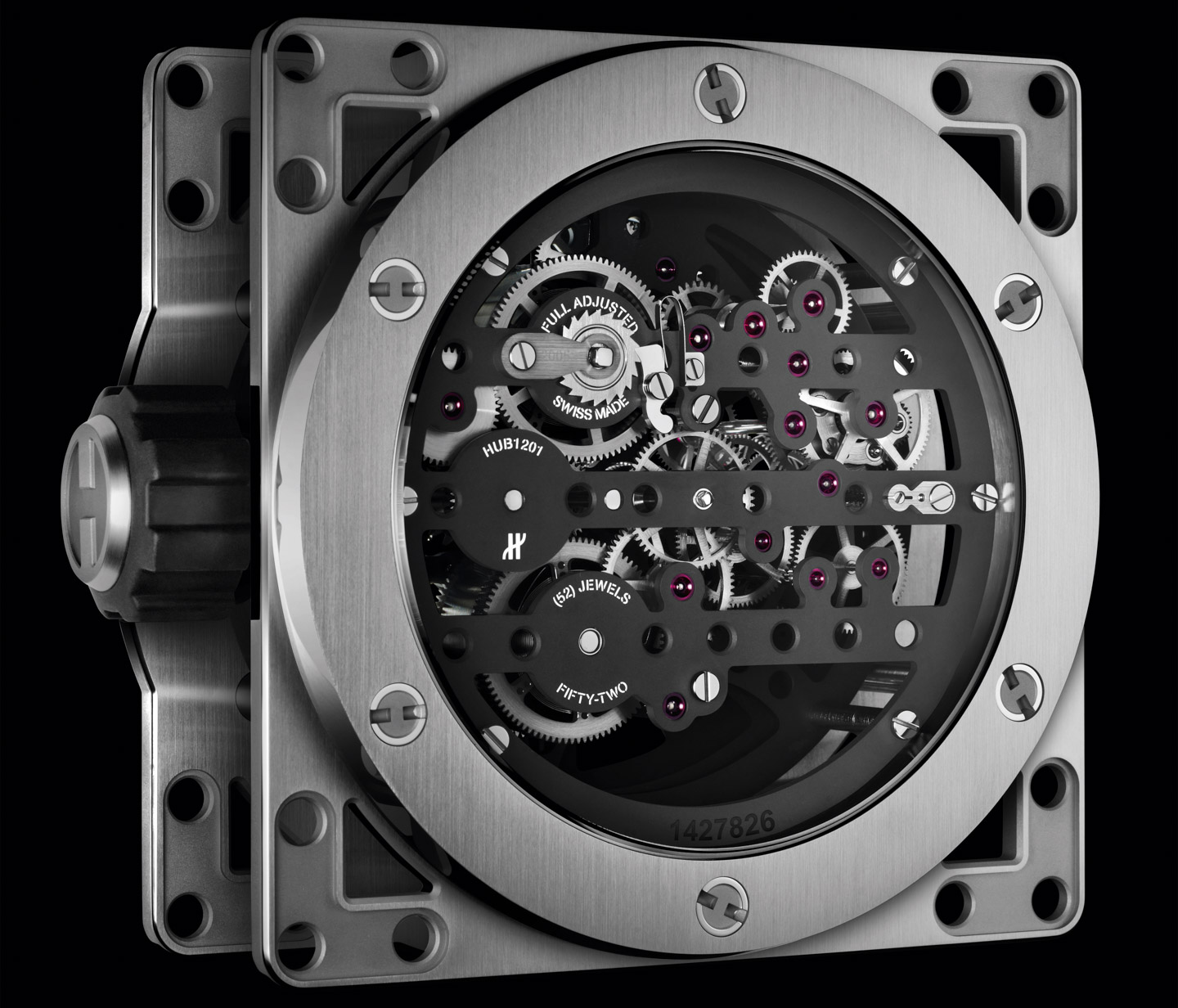
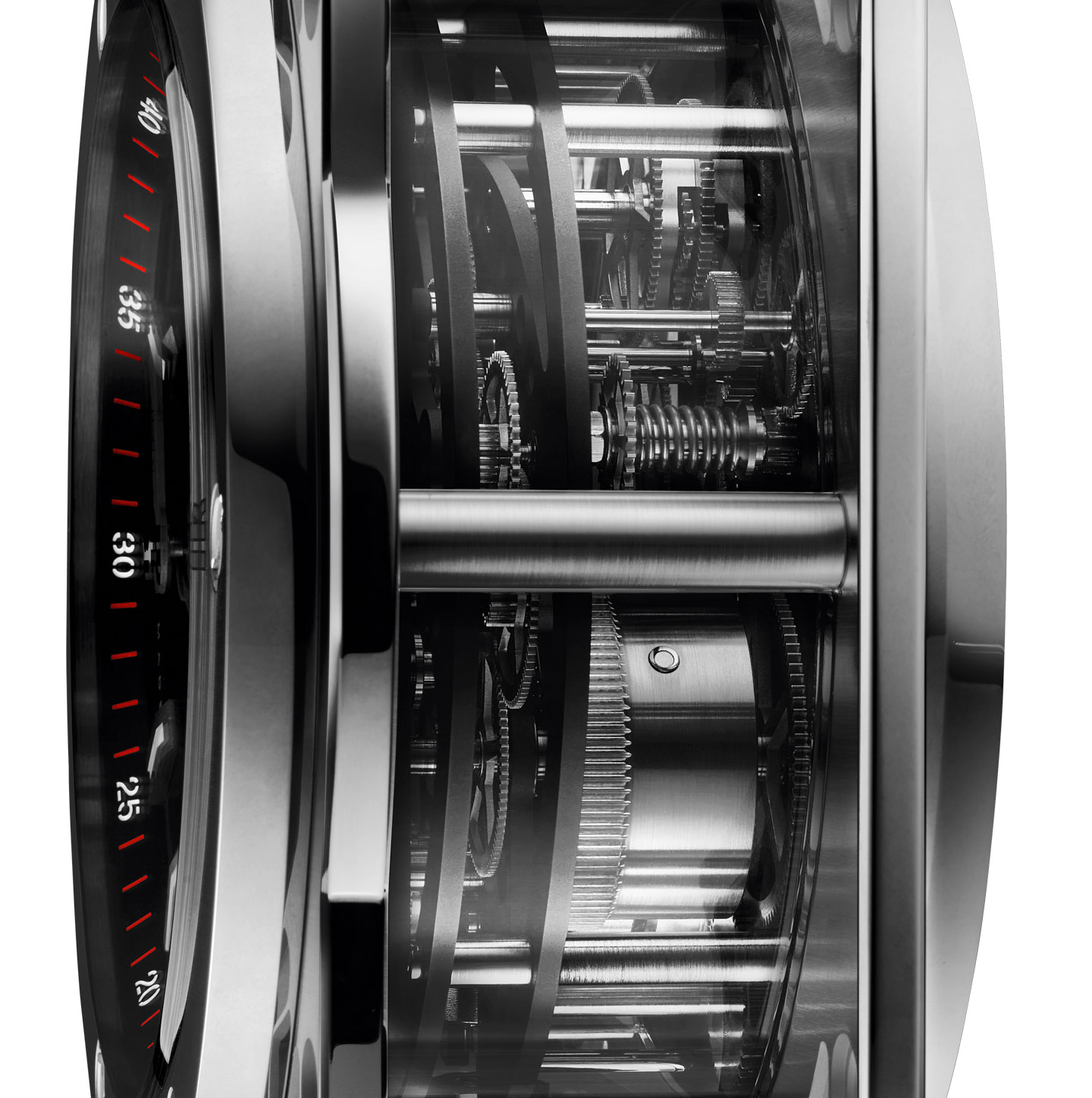
The MECA-10 wristwatch movement got away with a full 10 days of power reserve (between two mainspring barrels), operating at 2.5Hz (18,000 bph). The L’Epee clock is the same movement (more or less), but larger. It also operates at 2.5Hz with 10 days of power reserve and is composed of 432 parts. The movement features the time with subsidiary seconds and a neat-looking power reserve indicator system that combines indicators with a view of how the mechanics work.
The MECA-10 Clock is basically a desk-clock version of the wristwatch, albeit in a different case. I actually think it would have been even more charming if the clock case looked more like the watch case. That way we could muse about what type of giant might want to put a strap on it and wear it as a wristwatch. Instead, the Hublot MECA-10 Clock case is more inspired by marine or cockpit instruments and looks like it is meant to be bolted into a panel.
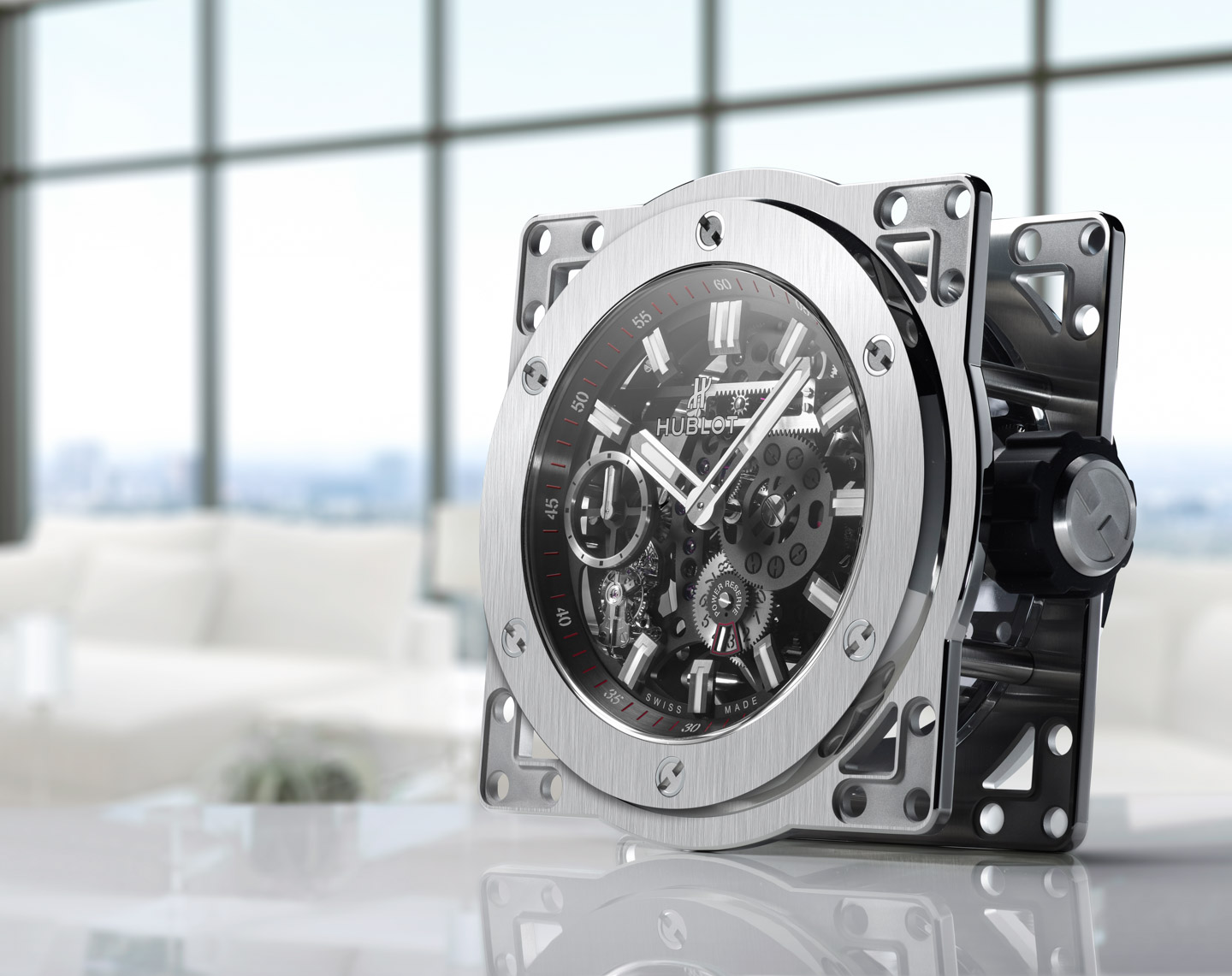
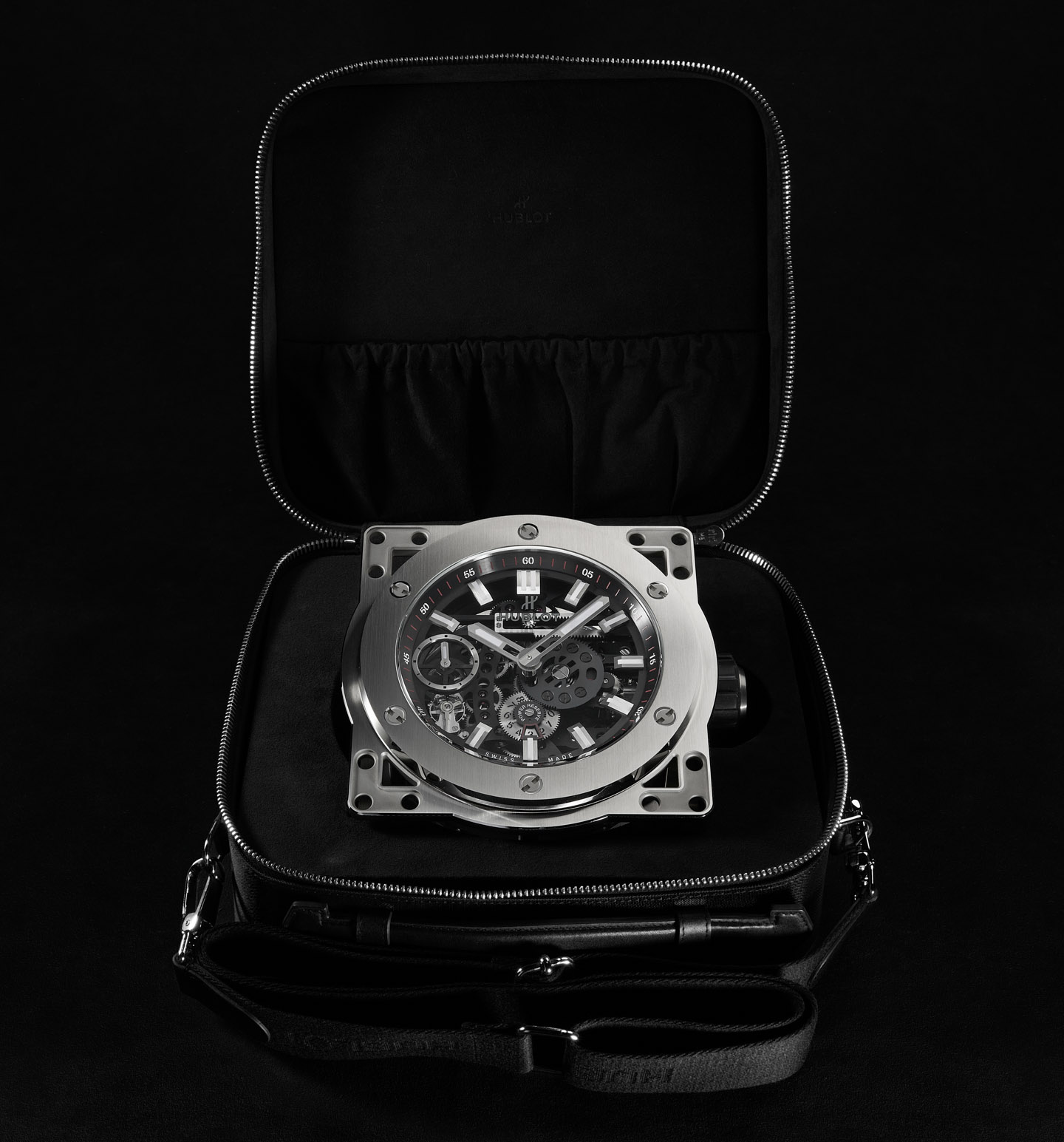
The clock parts themselves are coated brass and the MECA-10 Clock body is produced from steel. Hublot offers two versions of the MECA-10 Clock, in either natural steel (reference DC.MECA.10.SD.SP.1123) and also in the slightly more expensive black PVD-coated steel reference DC.MECA.10.SX.SP.1123 version. Price is $47,400 USD and $50,500 USD respectively. Learn more at the Hublot website here.

